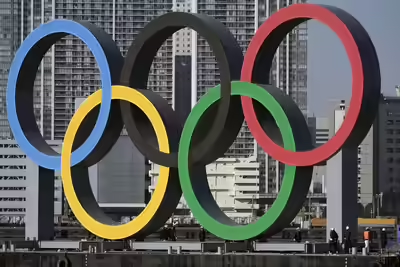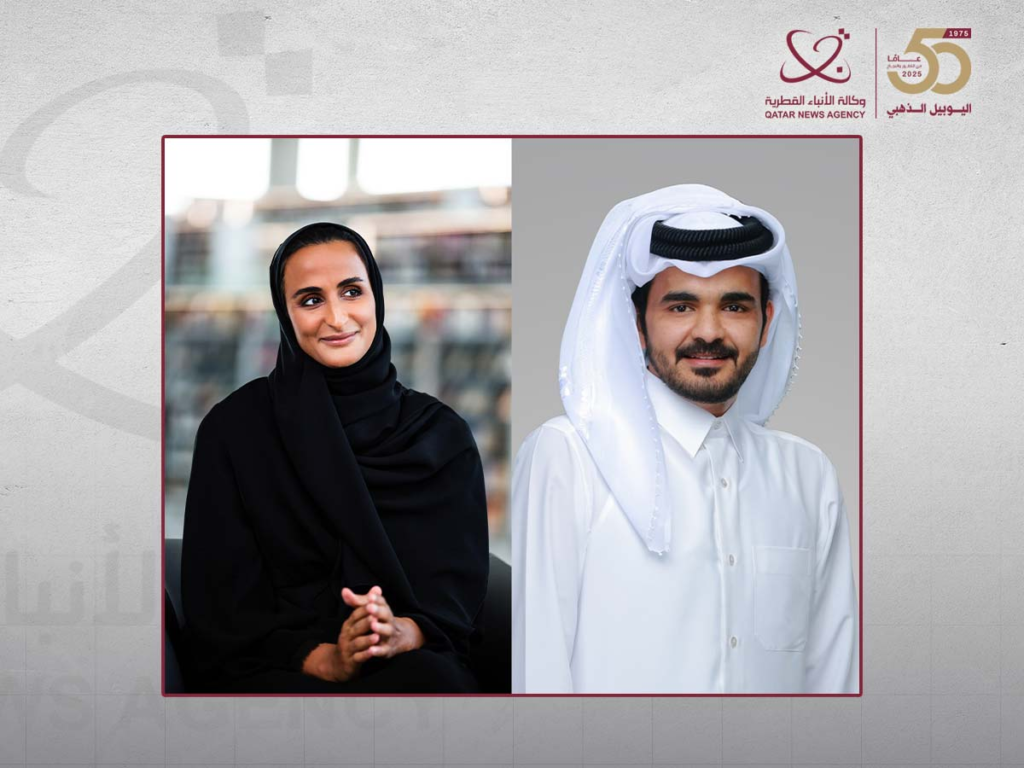In a significant step forward in the Qatar 2036 Olympics bid, the Qatar Olympic Committee (QOC) has officially unveiled the leadership team that will spearhead the nation’s campaign to host the 2036 Olympic and Paralympic Games. This announcement marks a turning point in Qatar’s long-term sports strategy and reflects its ambition to position itself as a global hub for sports and international events.
The bid committee’s formation signals a formal move from exploration to active preparation. The eight-member leadership team includes some of Qatar’s most respected figures in sports management, policy-making, sustainability, infrastructure, and global diplomacy.
This bold initiative follows Qatar’s successful hosting of the 2022 FIFA World Cup, the Doha Diamond League, and a variety of global tournaments. The leadership’s unveiling reflects the country’s evolving sports narrative a shift from regional excellence to global dominance.
Why the Leadership Announcement Matters
The announcement of the Qatar 2036 Olympics bid committee is more than a bureaucratic update. It is a statement of purpose, vision, and capability. The selected leaders represent a blend of strategic acumen, international experience, and national pride.
Each committee member brings a specialized skill set to the table—from logistics and sustainability to athlete engagement and public diplomacy. Their united goal: to deliver one of the most inclusive, technologically advanced, and sustainable Olympic Games in history.
The announcement further boosts Qatar’s international image, portraying it as a country with long-term planning and execution power. The leaders are not only preparing a bid but crafting a legacy that aligns with Qatar National Vision 2030.

Who Are the 8 Leaders?
Let’s take a closer look at the individuals chosen to guide the Qatar 2036 Olympics bid.
1. Sheikh Joaan bin Hamad Al Thani – Chairman
As President of the QOC, Sheikh Joaan leads the bid with authority and vision. Known for his role in overseeing the delivery of the Doha 2030 Asian Games, he brings high-level experience and international credibility to the leadership.
2. Mariam Al-Misnad – Vice Chairperson
The Minister of Social Development and Family, Al-Misnad’s appointment emphasizes Qatar’s commitment to inclusivity, social impact, and the Paralympic movement. She is set to champion diversity and accessibility throughout the bid process.
3. Jassim Rashid Al-Buenain – CEO of the Bid Committee
Currently serving as QOC Secretary General, Al-Buenain is tasked with turning strategy into execution. He previously played a key role in the World Athletics Championships 2019, showcasing his operational expertise.
4. Dr. Thani bin Abdulrahman Al Kuwari – Chief Financial Strategist
Former Minister of Finance, Dr. Al Kuwari brings the financial muscle to the table. His role will be critical in ensuring the bid’s cost-efficiency, transparency, and long-term return on investment.
5. Fatma Al-Nuaimi – Communications and Public Engagement Head
Having served as Executive Director of Communications for the FIFA World Cup Qatar 2022, Al-Nuaimi’s expertise in international storytelling and media will help shape the public perception of the bid.
6. Abdulaziz Al-Mahmoud – Infrastructure and Planning Director
An architect of major sporting venues across Qatar, Al-Mahmoud’s focus will be on infrastructure planning and readiness, especially in alignment with the International Olympic Committee (IOC) requirements.
7. Yousuf Al-Kuwari – Sustainability and Legacy Lead
As CEO of Qatar Charity and an advocate for global sustainability, Al-Kuwari will ensure that the bid is grounded in eco-friendly planning and lasting impact, both locally and globally.
8. Noora Al Mannai – Athlete Relations Coordinator
A former Olympian herself, Al Mannai will act as a bridge between athletes and planners. She will focus on athlete welfare, training support, and making the Qatar 2036 Olympics bid athlete-centric.
Qatar’s Growing Olympic Ambition
Qatar’s journey towards Olympic hosting is not new. The country has shown consistent interest in bidding for past games, particularly in 2020 and 2024, but withdrew due to global logistics and political considerations.
However, the Qatar 2036 Olympics bid is being launched at a time when the country is better prepared than ever. With world-class infrastructure, diplomatic leverage, and experience in hosting mega-events, Qatar is now seen as a strong contender.
The International Olympic Committee (IOC) is also adopting a new, more flexible approach for future host selections, which could play in Qatar’s favour. The emphasis on sustainability, digital transformation, and legacy fits well with Qatar’s development philosophy.

What Sets the Qatar 2036 Olympics Bid Apart?
Qatar’s bid will likely stand out for several reasons:
1. Existing Infrastructure
From Khalifa International Stadium to Lusail Stadium and Aspire Zone, Qatar already boasts cutting-edge facilities that can be adapted for Olympic use, minimising new construction.
2. Compact and Connected
Unlike traditional Olympic cities that sprawl across large geographic areas, Doha offers a compact layout with advanced transport systems including the Doha Metro, reducing travel time for athletes and fans.
3. Technological Innovation
The Qatar 2036 Olympics bid aims to be the most tech-enabled Games in history, integrating AI, data analytics, and smart city elements to improve the experience for athletes, fans, and global viewers.
4. Climate-Conscious Planning
Qatar plans to leverage indoor stadiums and advanced cooling technologies to ensure comfortable environments, even during warmer seasons. The bid may propose hosting the Olympics in October or November.
5. Inclusive and Global
The bid committee has pledged a focus on the Paralympics and disability inclusion. This ensures that the Games will not just be global in scale, but also in values and participation.
Challenges Qatar May Face
While the leadership team is strong and the vision is bold, there are hurdles to overcome.
1. Climate Concerns
Despite innovative cooling technologies, global stakeholders may raise concerns over Qatar’s summer climate. A fall-schedule proposal may help offset this issue.
2. Geopolitical Sensitivities
The Middle East is a complex region geopolitical, and some critics may question Qatar’s capacity to host in a volatile environment. However, its successful hosting of the 2022 FIFA World Cup did a lot to change that perception.
3. Human Rights Scrutiny
Qatar has faced criticism over labour and human rights issues. The bid committee will need to actively address these concerns through transparent policies and independent oversight.
Global Reactions and IOC Response
Initial international reactions have been largely positive. Several sporting organisations and former Olympians have voiced support for the Qatar 2036 Olympics bid. The IOC has not yet confirmed a timeline for final host selection but has acknowledged Qatar’s intent.
Given the country’s track record, financial readiness, and infrastructure quality, the IOC may see Qatar as a dependable and innovative host option.
What Comes Next?
The Qatar 2036 Olympics bid committee will begin international lobbying, engage with athletes, and participate in IOC forums. The next 24 months will be crucial as the bid team refines technical documents, garners public support, and strengthens global partnerships.
Public engagement campaigns and youth programs will also be launched to involve Qatar’s next generation in shaping the future of sport in the country.
Final Thoughts
The formation of the Qatar 2036 Olympics bid leadership team marks the beginning of a journey that could change the history of global sports. With strong leadership, strategic vision, and a commitment to excellence, Qatar is no longer just dreaming of hosting the Olympics it is preparing to win the right to do so.
Whether or not the bid is successful, one thing is certain: Qatar’s role in global sports will only continue to grow.
Do follow Gulf Magazine on Instagram
Also Read – Qatar Career Development Center Achieves 8 Global Wins at NCDA



